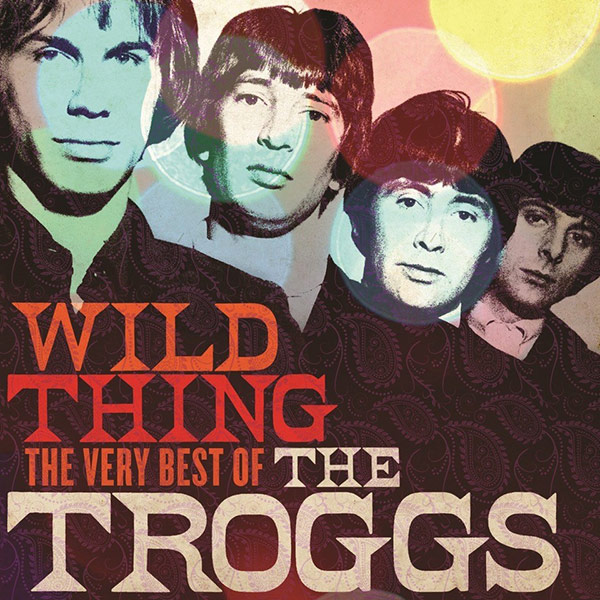Rock and roll history would likely have quite a different look were it not for the garage rock explosion of the ‘60s. Drawing inspiration from the British Invasion groups, hundreds of young bands sprang up during that decade, playing music with a strident, primitive energy that foreshadowed the punk movement that came 10 years later. Most garage bands faded into obscurity, but a significant few broke through and spawned hits that remain classics to this day. Below are 10 garage rock bands – all formed in the ‘60s – that made a lasting mark on contemporary music.
Count Five
With their 1966 hit, “Psychotic Reaction,” Count Five assured themselves a prime spot in garage rock’s rich legacy. Hailing from San Jose, California, and still in their teens when “Psychotic Reaction” scaled the charts, the band essentially sabotaged their burgeoning career when they opted to seek college degrees instead of further pursuing music. Legendary critic Lester Bangs famously immortalized the group in a glowing profile.
Flamin’ Groovies
Forerunners of both punk and power pop, Flamin’ Groovies crafted their garage rock aesthetic by wedding ‘50s-style rock and roll to a Brit-pop sense of melody. Unlike most of their San Francisco-based peers, the Groovies didn’t shy away from greasy blues, powered mostly by the dual whammy of guitarist Cyril Jordan and flamboyant singer Roy A. Loney. The band’s 1971 album, Teenage Head, remains a cult classic.
13th Floor Elevators
Hailing from Austin, Texas, and blessed with a charismatic frontman in the person of guitarist-singer Roky Erickson, the 13th Floor Elevators fused garage rock with psychedelia to forge their own explosive style. Founded in 1965, and pre-dating the San Francisco flower-power explosion, the Elevators were later acknowledged by fellow Texan Billy Gibbons as one of his prime inspirations. Sadly, physical and emotional problems brought on by substance abuse derailed the band’s grand ambitions, but not before they released a smattering of brilliant and influential albums.
The Seeds
Combining the trashy swagger of early Rolling Stones with a penchant for psychedelia, The Seeds scored two hits in the mid ‘60s with “Pushin’ Too Hard” and “Can’t Seem to Make You Mine.” The band’s willfully primitive style yielded two classic albums—The Seeds and A Web of Sound—but with their third disc, 1967’s Future, the group was derailed by an ill-fated attempt to make a concept album along the lines of Sgt. Peppers. The death of original Seeds singer Sky Saxon, in 2009, prompted members of Smashing Pumpkins, Love and The Electric Prunes to stage a tribute concert in his honor.
The Troggs
Iggy Pop, The Ramones and R.E.M. are among the many artists who’ve cited The Troggs as a major influence. The British band’s proto-punk cover of Chip Taylor’s “Wild Thing” is arguably the crown jewel of garage rock, and in fact The Troggs scored two additional hits with the flower-power ballad, “Love Is All Around,” and the riff-driven “With a Girl Like You.” It’s a testament to their ragged greatness that Jimi Hendrix loved the band.

? and the Mysterians
? and the Mysterians cemented their place as garage rock legends with one song: the timeless classic, “96 Tears.” A Number One hit in the fall of 1966, “96 Tears” had the incidental effect of making a swirling, sci-fi organ sound a common component of the garage rock blueprint. It’s worth noting that the band – whose eccentric frontman claimed to have been born on mars – was one of the first Latino rock groups to have a major hit.
MC5
In the late ‘60s, along with fellow Detroit natives The Stooges, MC5 forged a garage rock template upon which future punk rockers and thrash rockers would build. Thanks mostly to the one-two guitar punch of Wayne Kramer and Fred “Sonic” Smith, the band backed up their rebellious stance with music that seared with energy and volume. Kramer and Smith’s interlocking guitars influenced nearly every dual-lead guitar band that came in MC5’s wake.
The Electric Prunes
The Electric Prunes’ 1966 single, “I Had Too Much to Dream (Last Night),” forever established a place for the band as garage rock icons. Working at Leon Russell’s studio in Los Angeles, the Prunes went on to release a flurry of near-misses, including a splendid song titled “Kyrie Eleison” that was featured on the soundtrack for the classic film, Easy Rider. Often the band used odd sounds effects and innovative recording techniques, helping pave the way for early electronic rock.
Paul Revere & the Raiders
While few people recognized them as such during their glory days, Paul Revere & the Raiders were, in retrospect, purveyors of an unpretentious rock sound that clearly foreshadowed the ‘70s punk movement. Putting aside the silly Revolutionary War-styled attire, the group managed, with songs such as the 1965 hit “Steppin’ Out,” to forge a winning blend of streamlined pop and authentic R&B. One of the group’s self-penned tunes, “Louie Go Home,” was even covered by a young David Bowie and The Who.
The Kingsmen
If “Wild Thing” is garage rock’s crown jewel, then The Kingsmen’s “Louie Louie” rates only a notch below. Released in late 1963, the song was, at that time, an authentic slab of guitar-based rock on a singles chart laden with the likes of Bobby Vinton and The Singing Nun. The song has been covered by hundreds of artists, perhaps most notably by Iggy and The Stooges. Fittingly, the Stooges second album, Funhouse, was produced by original Kingsmen keyboardist Don Galluci.






